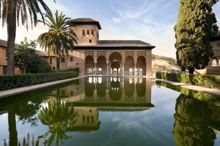ESPAÑOL – INGLÉS
PALABRA Ó FRASE Nº 350
‘EVOLUCIÓN’ nombre
1 (en biología) EVOLUTION.
2 (desarrollo) DEVELOPMENT.
‘EVOLUCIONAR’ verbo
1 (en biología) TO EVOLVE.
2( desarrollarse) TO DEVELOP.
Orígenes
El diccionario, originalmente, no tenía nada que ver con la universidad; fue concebido en Londres como un proyecto de la Sociedad Filológica, cuando Richard Chenevix Trench, Herbert Coleridge, y Frederick Furnivall se sintieron insatisfechos con los diccionarios de lengua inglesa existentes entonces.
En junio de 1857 fundaron el «Comité de las Palabras no Registradas», con el fin de encontrar las palabras que no habían sido aún listadas y definidas por los diccionarios. Pero el informe presentado por Trench en noviembre no era una simple lista de palabras sin registrar; era un estudio «Sobre ciertas deficiencias en nuestros diccionarios de inglés». Éstas, según dijo, eran siete:
- Cobertura incompleta de palabras obsoletas
- Cobertura inconsistente de familias de palabras relacionadas
- Fechas incorrectas para el primer uso de cada palabra
- Omisión frecuente de la historia de los significados obsoletos de las palabras
- Distinción inadecuada entre sinónimos
- Insuficiente uso de buenas citas ilustrativas
- Espacio desperdiciado en contenidos inapropiados o redundantes
Trench sugirió que era imprescindible un diccionario nuevo y realmente completo para los fines propuestos; uno que se basara en las contribuciones de un gran número de lectores voluntarios, que leyeran libros, que copiaran los pasajes que ilustraran los distintos usos reales de las palabras, y que las enviaran al editor. En 1858 la sociedad acordó dar inicio al proyecto denominado «New English Dictionary on Historical Principles» (abreviado «NED»), es decir, «Un nuevo diccionario de inglés basado en principios históricos».
=======================================EN INGLÉS======================================
Sources
The dictionary originally had nothing to do with the university ; was conceived in London as a project of the Philological Society , when Richard Chenevix Trench , Herbert Coleridge , and Frederick Furnivall became dissatisfied with the dictionaries of the English language then existing.
In June 1857 they founded the «Committee Unregistered Words» in order to find the words that had not been listed and defined by dictionaries. But the report Trench in November was not a simple list of unregistered words; was a study «On some deficiencies in our English dictionaries.» These, he said, were seven:
- Incomplete coverage of obsolete words
- Inconsistent coverage of families of related words
- Incorrect dates for the first use of each word
- Frequent omission of the history of the obsolete meanings of words
- Inadequate distinction between synonyms
- Insufficient use of good illustrative quotations
- Space wasted on inappropriate or redundant content
Trench suggested that a new dictionary was essential and really full for the purpose intended; one that was based on contributions from a large number of volunteer readers, to read books, which copied the passages that illustrate the various actual uses of words, and sent to the editor. In 1858 the company agreed to start the project «New Dictionary on Historical Principles Inglés» (abbreviated «NED»), ie, «A new English dictionary based on historical principles.»
Fuente: http://es.wikipedia.org











